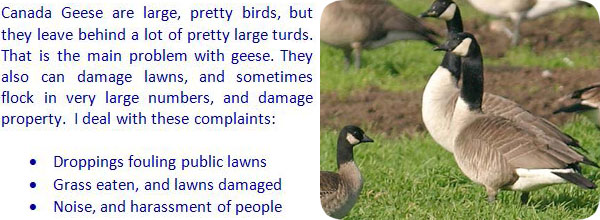Geese are often seen as symbols of peace and tranquility, but their presence can sometimes become problematic. Their droppings can be unsightly, they can damage property, and their aggressive behavior towards humans can pose a safety concern. This begs the question: can you kill a goose? The answer is not straightforward and depends on a complex interplay of legal, ethical, and practical considerations.
This article will delve into the factors that determine the legality and ethics of killing a goose. We’ll explore local ordinances, property ownership rights, ethical considerations, and the importance of consulting wildlife experts before taking any action against these feathered creatures.
Legality of Goose Killing
The legality of killing a goose varies significantly depending on your location and the specific circumstances. In many jurisdictions, it is illegal to kill geese without a permit or in certain protected areas. Hunting seasons for geese may be regulated, with specific timeframes and bag limits enforced.
It’s crucial to understand that simply finding a goose on your property does not automatically grant you the right to kill it. Laws regarding wildlife control are often complex and require careful consideration. Always consult local authorities or wildlife agencies to determine the legal implications of killing a goose in your area.
Local Ordinances and Regulations
Local governments often have specific ordinances and regulations regarding geese and other wildlife. These ordinances may address issues such as feeding geese, controlling their populations, and prohibiting the killing of geese within city limits.
It’s essential to familiarize yourself with your local ordinances before taking any action against a goose. Violating these regulations can result in fines or other penalties. Contact your local animal control department or city hall for information on relevant ordinances in your area.
Property Ownership Rights
While property owners generally have the right to protect their property from damage, this right does not automatically extend to killing geese.
If geese are causing significant damage to your property, you may be able to explore alternative solutions such as installing fencing, using repellents, or contacting a wildlife control specialist. However, resorting to lethal measures should always be a last resort and only after consulting with relevant authorities.
Ethical Considerations
The decision to kill a goose raises ethical concerns that should be carefully considered. Geese are sentient beings capable of experiencing pain and distress.
Killing a goose should never be undertaken lightly or without careful consideration of the potential consequences. Explore humane alternatives for managing geese populations, such as habitat modification, relocation programs, or non-lethal deterrents.
Wildlife Expert Consultation
Before making any decisions regarding geese on your property, it is highly recommended to consult with wildlife experts.
Wildlife biologists and control specialists can assess the situation, provide guidance on legal options, and recommend humane and effective solutions for managing geese populations. They can also offer valuable insights into the ecological role of geese and the potential impact of their removal.
Conclusion
Determining whether it is legal and ethical to kill a goose is a complex issue with no easy answers. Local ordinances, property ownership rights, ethical considerations, and the expertise of wildlife professionals all play crucial roles in this decision-making process.
Always prioritize humane and responsible approaches to managing geese populations, exploring alternatives to lethal measures whenever possible. Remember that geese are living creatures deserving of our respect and consideration.



